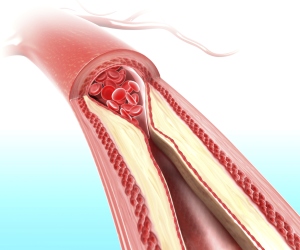Will more Americans benefit from cholesterol-lowering therapy?
In Nov 2013, the American College of Cardiology and the American Heart Association (ACC/AHA) introduced new guidelines to reduce heart attack and stroke through lifestyle changes and selective use of cholesterol-lowering medications.
The ACC/AHA proposed changes to the guidelines for prescribing cholesterol-lowering medications called statins in accordance with the latest clinical study data available on the use of these drugs to reduce heart attack and strokes, due to the high prevalence of heart attack and stroke associated with high blood cholesterol.

Dr. Woubeshet Ayenew
“For years, the LDL or ‘bad’ cholesterol level was the basis for the initiation and follow up of statin therapy,” cardiologist Dr. Woubeshet Ayenew at Hennepin County Medical Center explains. “But the new guidelines de-emphasized the value attached to following the LDL level and instead recommended that the intensity of statin therapy match the risk of stroke and heart attack in an individual. For example, high-intensity cholesterol reduction is now recommended for those who have had prior heart attack or stroke, since the recurrence of such events is highest for those individuals.”
According to the new guidelines, high-intensity statin therapy is also recommended for patients with markedly elevated LDL cholesterol of 190mg/dl – which is twice the recommended optimal level of this lipid. These individuals are known to be at high risk for heart attack and strokes and more likely to get the disease at a much younger age if not aggressively treated.

Cholesterol can cause plaque buildup in arteries
Beyond these two very high risk groups, the new ACC/AHA guidelines targeted their statin treatment recommendations to individuals who are 40-75 years of age and who are either diabetic or have a high incidence of heart attack and stroke based on a new risk calculator. The goal of applying the new risk calculator to these limited sets of patients is to focus the safest lipid management to those most likely to benefit from the therapy.
The new risk calculator has been criticized for overemphasizing the risk of stroke and heart attack attributable to advancing age and recommending statin therapy to more individuals than expected based on prior guidelines.
“However, this point of controversy also underscores the important fact that advancing age is the strongest predictor for heart attack and stroke in all individuals,” says Dr. Ayenew. “And more emphasis towards cardiovascular prevention and health is appropriate as we go past the age of 40.”
Dr. Ayenew encourages his patients to know their cardiovascular risk score and cholesterol numbers and be proactive in optimizing their cardiovascular health and disease prevention measures. A well informed patient will be prepared to participate in shared decision making with the provider during clinic visits and benefit the most from available preventive measures.
Maintaining a healthy lifestyle is an important way to reduce the risk of cardiovascular disease and its ramifications. Lifestyle modifications including adhering to a heart-healthy diet, regular exercise habits, avoidance of tobacco products, and maintenance of a healthy weight are still at the core of promoting cardiovascular health. These interventions are the first step in cholesterol-lowering therapy and continue to be useful in individuals who may benefit from the addition of statin therapy.
Dr. Woubeshet Ayenew practices in HCMC’s Cardiology Clinic located in downtown Minneapolis, as well as HCMC’s Brooklyn Center Clinic. The clinic was recently identified as the number one rated cardiology clinic by patients for “overall provider experience” in Minnesota, according to results published by Clinician and Group Consumer Assessment of Healthcare Providers and Systems (CGCAHPS), a tool used by the Centers for Medicare and Medicaid Services to collect patient feedback.
In addition to outstanding providers who respond to the needs of each patient, the Cardiology Clinic offers outpatient consultation, and follow-up in convenient locations. Specialized care and follow-up is available in the clinic for problems including congestive heart failure, arrhythmia management, preventative cardiology, cardiovascular care in patients with chronic renal failure, and peripheral arterial disease management.

